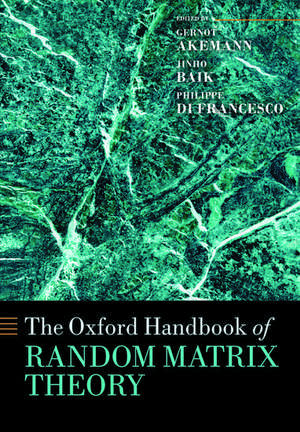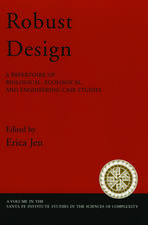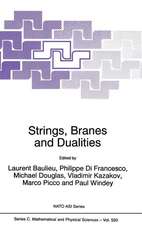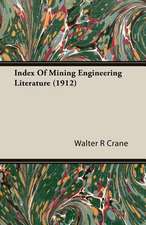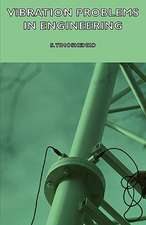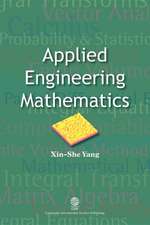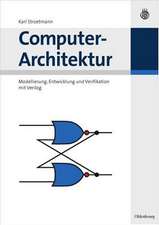The Oxford Handbook of Random Matrix Theory: Oxford Handbooks
Editat de Gernot Akemann, Jinho Baik, Philippe Di Francescoen Limba Engleză Paperback – 17 sep 2015
| Toate formatele și edițiile | Preț | Express |
|---|---|---|
| Paperback (1) | 358.83 lei 31-37 zile | |
| OUP OXFORD – 17 sep 2015 | 358.83 lei 31-37 zile | |
| Hardback (1) | 957.21 lei 31-37 zile | +203.45 lei 7-11 zile |
| OUP OXFORD – 28 iul 2011 | 957.21 lei 31-37 zile | +203.45 lei 7-11 zile |
Din seria Oxford Handbooks
-
 Preț: 236.89 lei
Preț: 236.89 lei - 15%
 Preț: 358.80 lei
Preț: 358.80 lei - 17%
 Preț: 912.51 lei
Preț: 912.51 lei - 12%
 Preț: 307.94 lei
Preț: 307.94 lei - 25%
 Preț: 829.05 lei
Preț: 829.05 lei - 14%
 Preț: 987.01 lei
Preț: 987.01 lei - 26%
 Preț: 1376.97 lei
Preț: 1376.97 lei - 34%
 Preț: 929.22 lei
Preț: 929.22 lei -
 Preț: 303.54 lei
Preț: 303.54 lei - 20%
 Preț: 343.85 lei
Preț: 343.85 lei - 14%
 Preț: 278.15 lei
Preț: 278.15 lei - 29%
 Preț: 930.94 lei
Preț: 930.94 lei - 30%
 Preț: 1065.79 lei
Preț: 1065.79 lei - 15%
 Preț: 357.85 lei
Preț: 357.85 lei -
 Preț: 263.45 lei
Preț: 263.45 lei - 23%
 Preț: 839.81 lei
Preț: 839.81 lei - 16%
 Preț: 264.39 lei
Preț: 264.39 lei - 33%
 Preț: 737.68 lei
Preț: 737.68 lei - 33%
 Preț: 725.45 lei
Preț: 725.45 lei - 26%
 Preț: 342.76 lei
Preț: 342.76 lei - 25%
 Preț: 366.95 lei
Preț: 366.95 lei - 13%
 Preț: 304.72 lei
Preț: 304.72 lei - 16%
 Preț: 263.35 lei
Preț: 263.35 lei - 12%
 Preț: 267.23 lei
Preț: 267.23 lei - 33%
 Preț: 815.51 lei
Preț: 815.51 lei - 6%
 Preț: 346.76 lei
Preț: 346.76 lei - 22%
 Preț: 1095.69 lei
Preț: 1095.69 lei - 29%
 Preț: 931.18 lei
Preț: 931.18 lei - 29%
 Preț: 942.77 lei
Preț: 942.77 lei - 24%
 Preț: 1071.82 lei
Preț: 1071.82 lei - 23%
 Preț: 1052.07 lei
Preț: 1052.07 lei - 21%
 Preț: 863.03 lei
Preț: 863.03 lei - 30%
 Preț: 815.25 lei
Preț: 815.25 lei - 29%
 Preț: 855.42 lei
Preț: 855.42 lei - 30%
 Preț: 842.04 lei
Preț: 842.04 lei - 11%
 Preț: 258.32 lei
Preț: 258.32 lei - 29%
 Preț: 859.51 lei
Preț: 859.51 lei - 29%
 Preț: 1083.61 lei
Preț: 1083.61 lei - 15%
 Preț: 273.41 lei
Preț: 273.41 lei - 30%
 Preț: 818.12 lei
Preț: 818.12 lei - 11%
 Preț: 365.23 lei
Preț: 365.23 lei - 21%
 Preț: 359.87 lei
Preț: 359.87 lei - 13%
 Preț: 264.87 lei
Preț: 264.87 lei - 9%
 Preț: 307.08 lei
Preț: 307.08 lei - 28%
 Preț: 845.79 lei
Preț: 845.79 lei - 23%
 Preț: 855.11 lei
Preț: 855.11 lei - 21%
 Preț: 861.04 lei
Preț: 861.04 lei - 12%
 Preț: 250.34 lei
Preț: 250.34 lei
Preț: 358.83 lei
Preț vechi: 391.22 lei
-8% Nou
Puncte Express: 538
Preț estimativ în valută:
68.67€ • 74.57$ • 57.68£
68.67€ • 74.57$ • 57.68£
Carte tipărită la comandă
Livrare economică 11-17 aprilie
Preluare comenzi: 021 569.72.76
Specificații
ISBN-13: 9780198744191
ISBN-10: 0198744196
Pagini: 960
Dimensiuni: 171 x 246 x 49 mm
Greutate: 1.64 kg
Editura: OUP OXFORD
Colecția OUP Oxford
Seria Oxford Handbooks
Locul publicării:Oxford, United Kingdom
ISBN-10: 0198744196
Pagini: 960
Dimensiuni: 171 x 246 x 49 mm
Greutate: 1.64 kg
Editura: OUP OXFORD
Colecția OUP Oxford
Seria Oxford Handbooks
Locul publicării:Oxford, United Kingdom
Notă biografică
Gernot Akemann gained his PhD in theoretical physics at Leibniz Universität Hannover in 1996. He was an EU Marie-Curie Fellow from 1996 until 1998. He has worked at MPIK Heidelberg and later at CEA SPhT, where he held a Heisenberg fellowship. He is currently Professor for Mathematical Physics at the Faculty of Physics, Bielefeld University, Germany. Jinho Baik gained his PhD in mathematics at New York University in 1999. He has been the recipient of the AMS Centennial Fellowship, the Sloan Research Fellowship and he won the CMFT2005 Young Researcher Award. He is currently an associate professor in the Department of Mathematics, University of Michigan.Philippe Di Francesco gained his PhD in theoretical physics in 1989 at the Université Pierre et Marie Curie (Paris 6). He completed his habilitation in mathematics in 2004 at the Université Paris Diderot (Paris 7). He was a postdoctoral researcher in the Department of Mathematics, Princeton and a professor with the Department of Mathematics, University of North Carolina. He has been a research member of IPHT, CEA Saclay since 1989.
